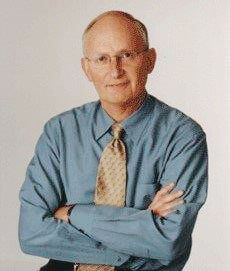I have always been intrigued with how people get their first names, which names are currently most popular, and how people get nicknames that stay with them throughout their lives.
My nickname is “Reeve” given to me by my grandmother, who with her Eastern European accent turned my Hebrew name Reuven into Reeven, which was then shortened to Reeve.
I am also interested in people’s family names. At the beginning of the biblical period the Israelites, like all members of ancient societies, had no surnames.
Men were known simply as Abraham, Isaac, and Jacob. As the patriarchal families swelled into tribes, more definite identification was deemed necessary, and so patronymics (surnames) came into use.
Thus, we find Joshua, the son of Nun, and Caleb, the son of Yefuneh, identified in the Hebrew Bible. Places of origin began to be used in Talmudic times for peoples’ names such as Nachum the Mede and Hillel the Babylonian.
In the 10th and 11th centuries, family names became common. With the rise of cities, it became impossible for individuals to know one another as they did in villages, and a personal first name no longer sufficed. The increase in commerce too necessitated a more exact system of naming.
In a number of countries, Jewish family names were often derived from Yiddish words and thus was born the “Jewish-sounding” last name. Occupations often served as a source of a family name. The common Jewish family name Metzger means “butcher,” and the last name Schneider means “tailor.”
Other last names related to the lineage of a Jewish family. For example, the last name Cohen or Kahn is a usual indication of priestly lineage, while Levine or Levy is an indication of Levitical lineage.
I was always intrigued by the fact that in the Bible God asks Adam to give the animals names. Naming becomes the first human independent act in recorded history.
One rabbinic interpretation posits that God had to prove to the angels that humans were superior to them. To do so, God asked the angels to name the animals, but they were unable to do so.
God then sent the animals to Adam to see what he would call them. Adam succeeded in naming every animal, thus demonstrating his superior intelligence, or at least advanced knowledge of zoology, at that point a very young science.
There is a deeper interpretation to Adam’s naming of the animals. In the ancient world, to know something’s inner name was to know its very nature—have power over it.
By having Adam give names to the animals, God is again showing us that human beings are more than an animal. Unlike animals, humans have the power of speech and the ability to make moral decisions.
In his recent article in The New York Times, Arthur Brooks cited a quotation from Dale Carnegie’s book “How to Win Friends and Influence People:” “Remember that a person’s name is to that person the sweetest and most important sound in any language.” Brooks then goes on to say that according to a 2013 survey, 79 percent of the population like their names, while 21 percent do not.
Brooks writes that he is in the 21 percent, feeling that Arthur is a name that makes him sound old. Currently, the name Arthur doesn’t even crack the top 200 boys’ names.
Some researchers have even tried to show correlations between people’s names and their appearance. In a recent study in The Journal of Personality and Social Psychology, researchers showed participants images of unfamiliar faces and asked them to guess the person’s name from a list of four plausible-seeming names.
The odds are that the participants should have guessed correctly 25 percent of the time, but instead got it right 38 percent of the time. There is actually a field of study called “onomastics” in which researchers study proper names.
Studies in this field have shown that boys with more feminine-sounding names tend to misbehave disproportionately upon entry to middle school compared with boys with more traditionally masculine names.
Another study has noted that people often gravitate toward places of residence and occupations that resemble their own names. So, the researchers assert, a higher proportion of men named Louis live in St. Louis then would occur at random, and a lot of people named Dennis or Denise become dentists. Who knew?
The Jewish sages have taught that there are three crowns: the crown of Torah, the crown of priesthood, and the crown of royalty. But the crown of a good name excels them all.
A good name is to be treasured above precious oil. Wealth, like health, may pass away, but a good name is to be treasured above precious oil.
It can adorn a person throughout life, and it can be bequeathed as a precious inheritance.
Wishing you the crown of a good name, and use it in good health.
Rabbi Isaacs is rabbi at Beth Judah Temple, Wildwood. He invites questions emailed to his website, www.rabbiron.com.








